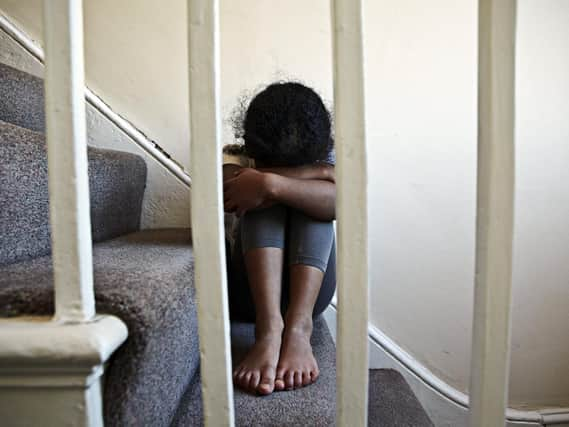Why some Yorkshire children could be more at risk under lockdown


Families being confined to single rooms and trapped in unsuitable temporary accommodation has “magnified the trauma” of existing social problems like poverty and domestic abuse, the charity said, with urgent consequences for at-risk children.
According to official data analysed in a new report from the Children’s Commissioner, North Yorkshire children have the poorest access to home broadband in England, which means many children in the county could see their education seriously jeopardised.
Advertisement
Hide AdAdvertisement
Hide AdThe East Riding of Yorkshire also has a large number of children with no broadband access.
Meanwhile, children in Calderdale are more likely to suffer domestic violence than anywhere else in England.
They are also more likely to be in households with mental health and drug or alcohol problems than most other places.
Hundreds of thousands of children in England are living in households where there is domestic violence, adult mental ill health and substance abuse, the report, from the office of Children’s Commissioner Anne Longfield, stated.
Advertisement
Hide AdAdvertisement
Hide AdIt said: “Many children are potentially vulnerable due to difficulties their families were facing before lockdown.
“For these families the loss of support networks, alongside the anxiety and financial pressures caused by Covid-19, could be what tips them from being able to cope, to reaching crisis point.”
The report said that many families with children at risk were not known to social services.
It added: “For those who are known to services, during the current crisis, there is a real risk that many more will become ‘invisible’ – those who were getting early help from non-statutory services, or those assessed as ‘lower risk’ by social workers.”
Advertisement
Hide AdAdvertisement
Hide AdPolly Neate, chief executive of Shelter, said: “Coronavirus has magnified the trauma of homelessness and poor housing felt by thousands of children trapped in grossly overcrowded homes, and cramped temporary accommodation. These children are caught in the middle as this public health crisis collides head on with our housing emergency.”
She said the charity’s services are “tragically all too familiar with desperate pleas of parents trying to keep their children happy and safe,” while living in run-down rooms no bigger than a parking space, making it impossible to isolate if someone gets sick.
“These children must not become the forgotten victims of this lockdown. The government must give councils the cash injection and guidance they need to help those children in greatest danger during this pandemic,” she said.
Leeds had the highest rate of children at high risk of homelessness in Yorkshire, partly caused by high rental prices and a lack of social and affordable housing.
Advertisement
Hide AdAdvertisement
Hide AdThis news follows separate child welfare concerns as data shows child protection reports have dropped by up to 50 per cent in some areas since the UK went into lockdown as schools are less able to spot signs of child abuse and neglect.
Responding to increasing concern, despite a drop in funding in many cases, charities across the region have stepped up efforts to protect children.
IDAS, a domestic violence charity working in North Yorkshire, York, Barnsley and Sheffield, saw a 30 per cent increase in contacts to its live chat service in March, compared with last year, and has now increased the service to cope with higher demand.
Sarah Hill, chief executive of IDAS said the charity was “immensely proud” of its response, adding: “We are really worried about the risks of people being isolated with abusive people whose behaviour may escalate due to increasing uncertainty, pressure on finances and cramped conditions.”
Advertisement
Hide AdAdvertisement
Hide AdShe said people were likely to be feeling very scared about being isolated with abusers for long periods of time.
“We want them to know that there is support available. Over the next few months, we will work creatively and flexibly to provide vital services in very difficult circumstances.”